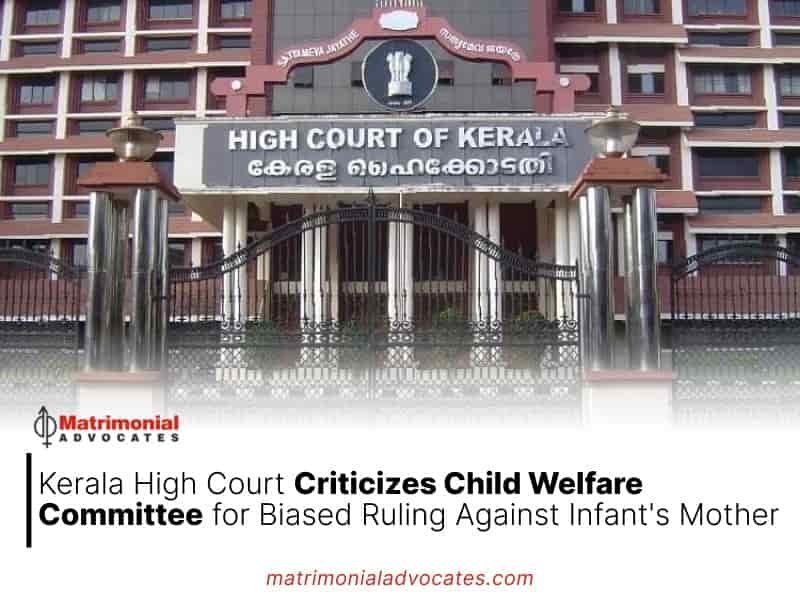
“Personal moral values always result in biased judgments. Unfortunately, the order reflects nothing other than the moral bias of the Committee members,” the Court said.
The Kerala High Court recently criticized the Child Welfare Committee (CWC) for making child custody decisions based on moral considerations instead of prioritizing the child’s best interests.
The Court expressed its discontent after a woman filed a petition challenging a CWC order that awarded custody of her child to the child’s father.
In that ruling, the CWC had imposed moral judgments against the woman for leaving her husband and relocating with their three-month-old infant. Additionally, the CWC remarked on her subsequent elopement with another man.
Justice VG Arun, sitting as a single judge, observed that the CWC’s findings were influenced by the personal biases of its members.
“This Court in Aneesa F v Shafeekmon KI has held that the moral judgment reflected in orders would defeat the objective of inquiry in matters of this nature. The one and only concern of the Committee should be the best interest of the child. That, the mother of the child has chosen to live with a person other than her husband is not the Committee’s concern. Judged by moral standards of the members, the petitioner may not be a good person, but that does not make her a bad mother. Personal moral values always result in biased judgments. Unfortunately, the order reflects nothing other than the moral bias of the Committee members”, the Court said in its judgment.
Personal moral values always result in biased judgments.
Kerala High Court
The Court further criticized the CWC for disregarding that the child was still breastfeeding, stating that denying the mother access violated the child’s rights under Article 21 of the Indian Constitution.
“The counsel for the petitioner (mother) is correct in her submission that, severance of a one year and four month old baby from its mother violates her right to breastfeed the baby and that of the baby to be breastfed, such right being a facet of right to life under Article 21 of the Constitution. Our Constitution also imposes a duty on the State to raise the level of nutrition, which implicitly support breastfeeding,” the Court stated.
Our Constitution also imposes a duty on the State to raise the level of nutrition, which implicitly support breastfeeding.
The Court also noted that, according to the Juvenile Justice (Care and Protection of Children) Act, 2015, the CWC is authorized to decide on child custody only when both parents are either unable or unwilling to care for the child. In this case, however, both parents were willing and capable of providing care.
“The parents patriae principle would enable intervention by the CWC for protecting the child and acting as its parent only when the biological parents fail to take care and protect the child,” the Court observed.
Given that the CWC had overlooked these critical factors, the Court upheld the mother’s petition, set aside the CWC’s order, and directed that custody of the child be immediately returned to her.
“It is disheartening to note that by reason of the impugned order, the baby is separated from its mother for the past almost one month, denying the care, comfort and love which is most crucial at this stage,” the Court added.





